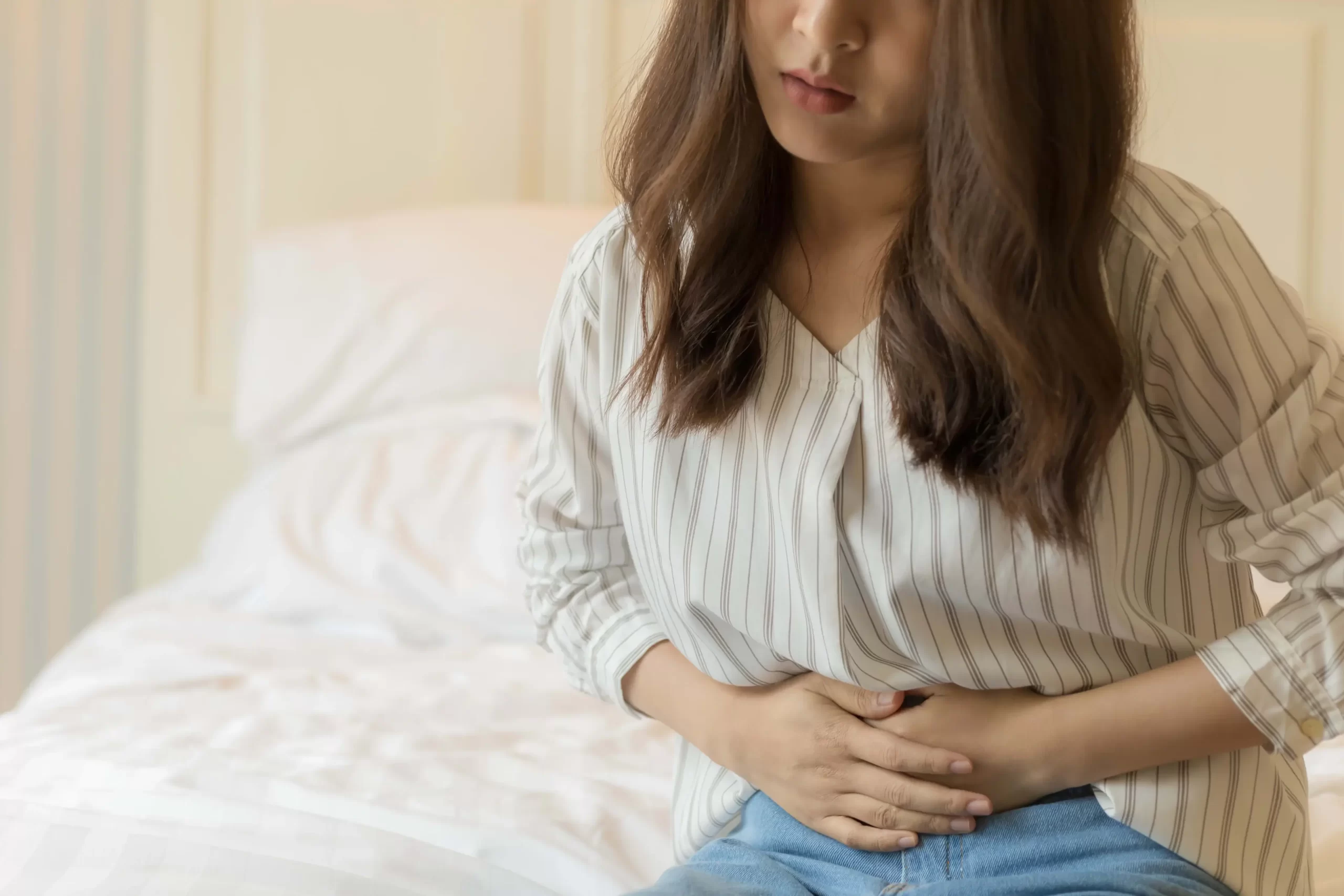Bloating During Ovulation: Causes, Relief, and When to See a Doctor
If you notice your belly feeling unusually full or tight around the middle of your menstrual cycle, you’re not alone. Bloating during ovulation is a common and completely normal symptom many women experience. It may make your stomach appear swollen, cause mild discomfort, or even mimic premenstrual bloating.

This temporary bloating is linked to hormonal changes that happen when your body releases an egg. The good news? With the right care and lifestyle adjustments, it’s usually easy to manage at home.
What Exactly Happens During Ovulation?
Ovulation occurs when one of your ovaries releases a mature egg for potential fertilization. In a typical 28-day menstrual cycle, this usually happens around day 14, but it can vary depending on your individual cycle length.
Here’s a brief overview of the hormonal process:
Follicle-Stimulating Hormone (FSH) helps several follicles grow in your ovaries.
One follicle matures fully and prepares to release an egg.
A sudden Luteinizing Hormone (LH) surge triggers the egg’s release.
After ovulation, progesterone levels rise to prepare your uterus for pregnancy.
These natural hormonal fluctuations are also what lead to bloating, breast tenderness, and mild abdominal pain around ovulation.
Why Does Ovulation Cause Bloating?
During ovulation, several hormonal changes can make you retain more water and feel gassy or full.
Water Retention: Rising estrogen and LH levels encourage your body to hold onto more fluid.
Progesterone Increase: After the egg is released, progesterone can slow digestion slightly, causing a bloated or heavy feeling.
Prostaglandin Release: These hormone-like chemicals can trigger mild cramping or abdominal discomfort.
Follicle Growth: The follicle enlarges before releasing the egg, temporarily adding pressure in your lower abdomen.
All these factors combine to give that tight or puffy sensation many women notice mid-cycle.
When Does Ovulation Bloating Start - and How Long Does It Last?
Most women experience bloating a day or two before ovulation as LH and estrogen levels peak. For others, it may begin on the day of ovulation and last for a few days afterward.
Typically, ovulation bloating eases within two to five days, but it can last longer if your hormone balance fluctuates or if you have conditions like PCOS (Polycystic Ovary Syndrome) that affect ovulation timing.
Is Bloating During Ovulation a Sign of Pregnancy?
Not necessarily. While some early pregnancy symptoms may overlap with ovulation symptoms (like bloating or breast tenderness), bloating during ovulation itself is not a reliable sign of pregnancy.
Pregnancy-related bloating generally appears after implantation, roughly a week or more after ovulation. To confirm pregnancy, you’ll need to wait until after a missed period and take a test.
Bloating After Ovulation: What’s Normal?
If you notice bloating after ovulation, it’s likely due to the rise in progesterone during the luteal phase (the second half of your cycle). This hormone relaxes the digestive muscles, slowing bowel movements and increasing gas.
However, if your bloating is accompanied by severe pain, nausea, or unusual discharge, it’s best to consult your gynecologist to rule out other conditions like ovarian cysts or gastrointestinal issues.
PCOS and Bloating During Ovulation
For women with Polycystic Ovary Syndrome (PCOS), ovulation may occur irregularly – or not at all. When it does, bloating can feel more intense due to hormonal imbalance and larger ovarian follicles. Managing PCOS with lifestyle changes, weight control, and medical care can help reduce such discomfort over time.
How to Reduce Ovulation Bloating Naturally
Most cases of ovulation bloating can be eased with simple self-care steps. Try the following expert-recommended strategies:
1. Stay Hydrated
Drinking enough water helps flush out excess sodium and reduces water retention. Aim for 8–10 glasses daily, adjusting for your activity level and weather.
2. Eat Smaller, Balanced Meals
Large meals can increase stomach pressure. Opt for smaller portions with fiber-rich foods, lean proteins, and vegetables.
3. Limit Salty and Processed Foods
High-salt foods can worsen bloating by increasing water retention. Choose fresh, whole foods whenever possible.
4. Gentle Exercise
Light activities like walking, yoga, or cycling help improve digestion and reduce bloating discomfort.
5. Heat Therapy
Applying a warm compress or hot-water bag to your lower abdomen can soothe cramps and relax the muscles.
6. Over-the-Counter Relief
If needed, mild NSAIDs (like ibuprofen) can ease pain related to prostaglandins. Always use them as directed and consult your doctor before long-term use.
When to See a Doctor
Bloating around ovulation is usually harmless, but it’s important to get checked if:
The bloating is severe or persistent throughout your cycle
You have sharp pelvic pain or fever
It’s affecting your daily activities or sleep
You experience unusual discharge, nausea, or irregular bleeding
Your gynecologist may recommend an ultrasound or hormone test to check for ovarian cysts, PCOS, or other reproductive issues.
Key Takeaway
Feeling bloated during ovulation is a normal response to hormonal shifts in your menstrual cycle. It typically lasts only a few days and can be managed through hydration, balanced meals, and light physical activity.
If your bloating becomes severe or interferes with your quality of life, don’t hesitate to consult a gynecologist at Shifa Hospitals, Tirunelveli, for expert evaluation and personalized care.
MS.,OG
Gynaecology & Obstetrics
Shifa Hospitals
